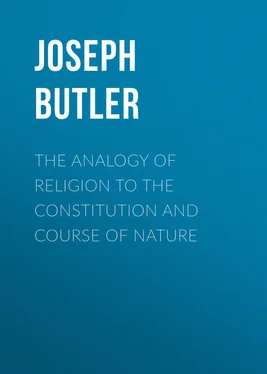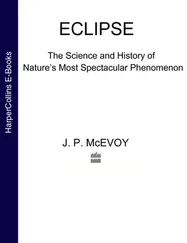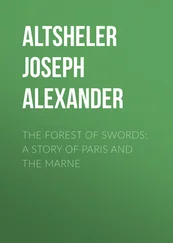Joseph Butler - The Analogy of Religion to the Constitution and Course of Nature
Здесь есть возможность читать онлайн «Joseph Butler - The Analogy of Religion to the Constitution and Course of Nature» — ознакомительный отрывок электронной книги совершенно бесплатно, а после прочтения отрывка купить полную версию. В некоторых случаях можно слушать аудио, скачать через торрент в формате fb2 и присутствует краткое содержание. Жанр: foreign_antique, foreign_prose, на английском языке. Описание произведения, (предисловие) а так же отзывы посетителей доступны на портале библиотеки ЛибКат.
- Название:The Analogy of Religion to the Constitution and Course of Nature
- Автор:
- Жанр:
- Год:неизвестен
- ISBN:нет данных
- Рейтинг книги:3 / 5. Голосов: 1
-
Избранное:Добавить в избранное
- Отзывы:
-
Ваша оценка:
- 60
- 1
- 2
- 3
- 4
- 5
The Analogy of Religion to the Constitution and Course of Nature: краткое содержание, описание и аннотация
Предлагаем к чтению аннотацию, описание, краткое содержание или предисловие (зависит от того, что написал сам автор книги «The Analogy of Religion to the Constitution and Course of Nature»). Если вы не нашли необходимую информацию о книге — напишите в комментариях, мы постараемся отыскать её.
The Analogy of Religion to the Constitution and Course of Nature — читать онлайн ознакомительный отрывок
Ниже представлен текст книги, разбитый по страницам. Система сохранения места последней прочитанной страницы, позволяет с удобством читать онлайн бесплатно книгу «The Analogy of Religion to the Constitution and Course of Nature», без необходимости каждый раз заново искать на чём Вы остановились. Поставьте закладку, и сможете в любой момент перейти на страницу, на которой закончили чтение.
Интервал:
Закладка:
2.) We may ourselves do much towards preventing the bad consequences of our misdeeds.
3.) Still more if assisted.
2.It might have been perfectly just if it were not so; but that it is so, shows compassion, as distinguished from goodness.
3.The course of nature affords many instances of such compassion.
4.Thus analogy sanctions an arrangement, by which the ruinous consequences of vice or folly may be averted, at least in some cases.
5.If the consequences of rash and inconsiderate acts, which we scarcely call vicious, are often so serious, we may apprehend that the bad consequences will be greater, in proportion as the irregularity is greater.
6.A dissolute disregard to all religion, if there be a religion, is incomparably more reprehensible than the mere neglects, imprudencies, &c. of this life.
7.As the effects of worldly imprudence and vice are often misery, ruin, and even death, no one can say what may be the consequences of blasphemy, contempt of God, and final impenitence.
8.Nor can any one tell, how far the consequences of such great wickedness can possibly be prevented, consistently with the eternal rule of right.
9.Still there would, from analogy, be some hope of room for pardon.
1.We do not know all the reasons for punishment, nor why it should be fit to remit punishment.
2.Nor do we know all the consequences of vice, and so should not know how to prevent them.
3.Vice impairs men’s abilities for helping themselves.
4.Misconduct makes assistance necessary, which otherwise would not have been. Why should not the same things be so, as to our future interests?
5.In temporal things, behaving well in time to come, does not repair old errors, why should it as to future things?
6.Were it so in all cases it would be contrary to all our notions of government.
7.It could not be determined in what degree, or in what cases, it would be so, even if we knew it might in some cases.
8.The efficacy of repentance, as urged in opposition to atonement, is contrary to the general sense of mankind; as shown by the prevalence of propitiatory sacrifices.
1.Confirms our fears as to the unprevented consequences of sin.
2.Declares the world to be in a state of ruin.
3.That repentance alone will not secure pardon.
4.That there is a mode of pardon, by interposition.
5.That God’s moral government is compassionate, as well as his natural government.
6.That he has provided, by the interposition of a mediator, to save men.
7.All this seems to put man in a strange state of helpless degradation. But it is not Christianity which puts him so. All philosophy and history show man to be degraded and corrupt.
1.He is “ that prophet .”
1.) Declared the will of God.
2.) Published anew the law of nature.
3.) Taught with authority.
4.) Revealed the right manner of worship.
5.) Revealed the exact use of repentance.
6.) Revealed future rewards and punishments.
7.) Set us a perfect example.
2.He has a kingdom which is not of this world.
1.) Founded a church.
2.) Governs it.
3.) Of it, all who obey him are members.
4.) Each of these shall live and reign with him forever.
3.He is a propitiatory sacrifice .
1.) How his sacrifice becomes efficacious, we are not exactly told.
2.) Conjectures may be absurd; at least cannot be certain.
3.) If any complain for want of further instruction, let him produce his claim to it.
4.) Some, because they cannot explain, leave it out of their creed; and regard Christ only as a teacher.
5.) We had better accept the benefit, without disputing about how it was procured.
1.We know not how future punishment would have been inflicted.
2.Nor all the reasons why it would be necessary.
3.The satisfaction by Christ, does not represent God as indifferent whether he punishes the innocent or guilty.
1.) We see, in this world, the innocent forced to suffer for the faults of the guilty.
2.) But Christ suffered voluntarily .
4.Though, finally, every one shall receive according to his own deserts; yet, during the progress of God’s scheme, vicarious sufferings may be necessary.
1.) God commands us to assist others, though in many cases it costs us suffering and toil.
2.) One person’s sufferings often tend to relieve another.
5.Vicarious atonement for sinners, serves to vindicate the authority of God’s laws, and to deter men from sin.
6.Objections to vicarious suffering are obviously not objections to Christianity, but to the whole course of nature.
7.The objection, therefore, amounts to nothing more than saying that a divine arrangement is not necessary, or fit, because the objector does not see it to be so; though he must own he is no judge, and could not understand why it should be necessary, if it were so!
1.God instructs us by experience.
2.This experience, though sufficient for our purposes, is an infinitely small part of his providence.
3.The things not understood involve God’s appointment, and Christ’s execution; but what is required of us , we are clearly informed.
4.Even the reasons for Christian precepts are made obvious.
It has been thought to be a positive argument against revelation, that its evidences are not adequate, and that it is not universally known and believed.
But the argument amounts to just this, that God would not bestow on us any favor, except in such a mode and degree as we thought best, and did exactly the same for everybody else.
Such a notion, all analogy contradicts.
1.It is often absolutely impossible to say which of two modes of acting will give most pleasure or profit.
2.If it were possible, we cannot know what changes temper, satiety, ill health, &c. might produce, so as to destroy our pleasure.
3.We cannot foresee what accidents may cut it all off.
4.Strong objections and difficulties may attach to the course of action we adopt, which yet all would admit ought not to deter us.
Читать дальшеИнтервал:
Закладка:
Похожие книги на «The Analogy of Religion to the Constitution and Course of Nature»
Представляем Вашему вниманию похожие книги на «The Analogy of Religion to the Constitution and Course of Nature» списком для выбора. Мы отобрали схожую по названию и смыслу литературу в надежде предоставить читателям больше вариантов отыскать новые, интересные, ещё непрочитанные произведения.
Обсуждение, отзывы о книге «The Analogy of Religion to the Constitution and Course of Nature» и просто собственные мнения читателей. Оставьте ваши комментарии, напишите, что Вы думаете о произведении, его смысле или главных героях. Укажите что конкретно понравилось, а что нет, и почему Вы так считаете.












